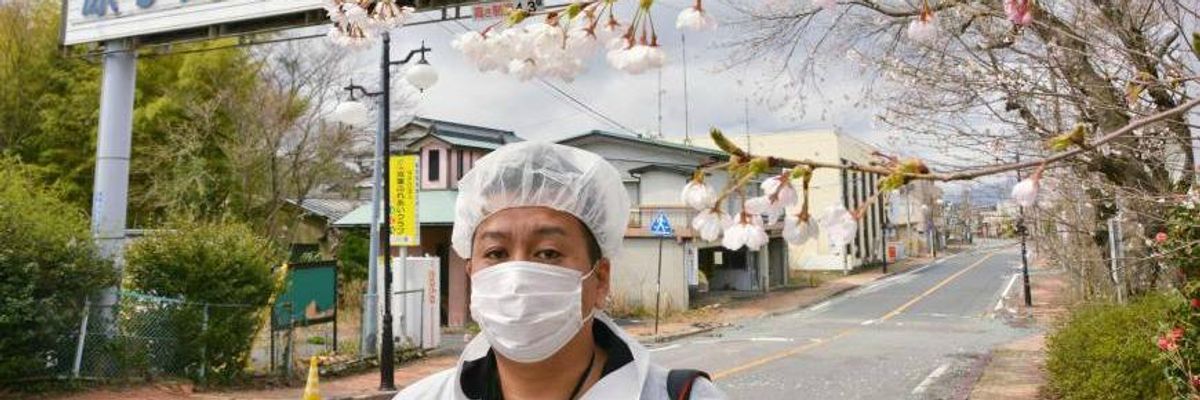Japan's 2011 nuclear meltdown and catastrophe transformed Futaba--home of the Fukushima No. 1 power plant--into a ghost town, with every single resident forced to evacuate. But the municipality's empty streets still contain prominent billboards proclaiming the promise of nuclear power.
Now, Japanese media outlets are reporting that some residents and outsiders have launched an unusual effort to leave those signs in place as an ironic testament to the human and environmental dangers of the controversial energy source that is now hugely unpopular in Japan.
In a campaign led by 39-year-old Yuji Onuma, approximately 6,500 signatures were submitted on Monday to the local government urging them to leave the signs in their place.
Onuma was just an elementary school student when he wrote one of the four slogans prominently on display in Futaba: "Nuclear Power: Energy for a Bright Future." He organized the petition in March after learning that the Futaba municipality had plans to tear the signs down.
"Instead of getting rid of it as an inconvenient thing, it should be preserved for future generations as an embarrassing legacy," he told reporters Monday, according to Japan Times.
The Japan Times article noted: "Of the 6,500 signatures, however, only about 50 are those of evacuated Futaba residents. The reason is simple: Many of them want the sign to go."
Upon receiving the petition, Futaba Mayor Shiro Izawa reportedly said, "We will take your request into account, give it serious consideration, and make a decision from a broad perspective."

